By Capt. Gene Thomas Gomulka, US Navy ret
In 1992, while serving as the Deputy Chaplain of the U.S. Marine Corps, I was tasked to work with Lieutenant General Matt Cooper in identifying Core Values to be promulgated by the Commandant, General Carl E. Mundy, Jr.
While I recommended three core values, General Cooper proposed five. General Mundy decided on three: Courage, which both General Cooper and I suggested; Honor, which I advanced; and Commitment, as put forward by General Cooper.
In the process of researching this assignment, I was influenced by General MacArthur’s “Duty, Honor, Country” speech delivered at West Point in 1962. I was deeply moved by MacArthur who said to the Corps of Cadets,
“Duty, Honor, Country. Those three hallowed words reverently dictate what you ought to be; what you can be; and what you will be.”
When General Mundy promulgated the Core Values of the Marine Corps with a video-recorded speech, I regret that it did not receive the attention that General MacArthur’s speeches at West Point and before Congress received.
Here are five of fifteen paragraphs taken from General Mundy’s speech:
“Our Core Values—Honor, Courage, and Commitment—mold our character. They guide and shape our lives every hour of every day.
At the foundation of our core value system is honor. A person cannot be a Marine without honor. It’s the bedrock of our character. Honor is integrity, honesty, and responsibility.
It’s the quality that guides Marines to exemplify ethical and moral behavior; never to lie, cheat, or steal; to abide by an uncompromising code of integrity; to respect human dignity; and to have respect and concern for each other.
Courage. It’s the heart of our values. Courage to face the challenge of combat and master fear; courage to do what is right; courage to adhere to a higher standard of personal conduct; courage to lead by example; and courage to make tough decisions in the face of stress and pressure.
Commitment. It’s the spirit of determination and professionalism shared by all Marines. It leads to the highest order of discipline. It’s the ingredient that not only commits total devotion to Corps and country, but fosters an unrelenting determination to achieve a standard of excellence.
Today, as our society changes, it is more important than ever that our conduct is a beacon of these enduring values. Our Core Values are a cornerstone of the Corps and a source of strength for every Marine.”
Interestingly, shortly after General Mundy promulgated the Core Values of “Honor, Courage, and Commitment,” Admiral Frank B. Kelso II, while serving as Acting Secretary of the Navy and Chief of Naval Operations, decided to replace the Navy’s Core Values of “Integrity, Professionalism, and Tradition.” From that point on, “Honor, Courage, and Commitment” became the Core Values of the entire U.S. Naval Service.
After West Point leaders decided recently to remove “Duty, Honor, Country” from its mission statement and replace these “three hallowed words” with “Army Values,” one might ask, “What specific ‘values’ are soldiers today called to espouse?” Are they the woke values of “Diversity, Equality, and Inclusion?”
If the Marine Corps invites men and women to become a part of “The Few, the Proud, the Marines,” what image do Army leaders hold up for its recruits today?
Without a sense of pride in an institution in which one serves, is it no wonder that military recruiting and retention have fallen in recent years?
Who wants to join or remain a part of an organization that does not promote its members based on performance and talents?
When will woke military leaders recognize that promoting people based on achieving racial or gender goals is intrinsically discriminatory and ultimately divisive?
It remains to be seen if current military leaders will learn from their mistakes and realize that recruiting will continue to suffer, no matter how much money they offer recruits, as long as they betray the long-standing traditions that made people proud to serve their country.
Woke military leaders would be wise to take to heart what Captain Larry Ellis, the Chaplain of the Marine Corps, wrote over 30 years ago to the Commandant,
“Many of the values to which the U.S. Marine Corps is committed are no longer supported by contemporary culture…
The strength of the Marine Corps is leadership within a context of honor, sustained by sacrifice.
This strength has the potential to remedy the weaknesses of a culture that has forgotten that its young need to be mentored and nurtured; that a sense of honor must be taught; and that for the good of all, individuals must be willing to sacrifice personal prerogatives.”
The Commandant took to heart Ellis’ admonition and promulgated “three hallowed words” like MacArthur did at West Point.
It remains to be seen what current Army leaders are talking about when they ask their troops to adhere to “Army Values.”
_
Gene Thomas Gomulka is a retired (O6) Navy Captain who co-authored the Marine Corps and Navy Core Values of “Honor, Courage, and Commitment,” and who was awarded the Alfred Thayer Mahan Award by the Secretary of the Navy for “literary achievement and inspirational leadership.”
General Carl E. Mundy’s Core Values Speech
 The Eagle, Globe, and Anchor has endured, as a symbol of Marine Corps traditions and uncompromising values.
The Eagle, Globe, and Anchor has endured, as a symbol of Marine Corps traditions and uncompromising values.
As each new generation earns the right to wear our emblem, we inherit the responsibility of living according to a set of values and standards of conduct that have marked Marines as special members of American society for more than two centuries.
You have heard me express my conviction that the Corps is a national institution, and that Marines are held in the highest esteem by the American people. They expect us to reflect the solid values of our society and our nation.
When you wear the Eagle, Globe, and Anchor, you symbolize the epitome of fighting skills and personal honor, and you represent all that our nation expects of its young people.
But with this demand for excellence comes a sacred trust. Each year, thou- sands of America’s sons and daughters are molded into United States Marines. We gladly accept this commitment.
These young Americans undergo tough and rigorous training when they go through this rite of passage. They come away with all the pride and dignity that goes with the title Marine.
Being a Marine means adhering to a set of enduring values. I want everyone to understand what these basic values are, and how through word and deed they have been handed down from one generation of Marines to another.
Our core values—Honor, Courage, and Commitment—mold our character. They guide and shape our lives every hour of every day.
At the foundation of our core value system is honor. A person cannot be a Marine without honor. It’s the bedrock of our character. Honor is integrity, honesty, and responsibility.
It’s the quality that guides Marines to exemplify ethical and moral behavior; never to lie, cheat, or steal; to abide by an uncompromising code of integrity; to respect human dignity; and to have respect and concern for each other.
Courage. It’s the heart of our values. Courage to face the challenge of com- bat and to master fear; courage to do what is right; courage to adhere to a higher standard of personal conduct; courage to lead by example; and courage to make tough decisions in the face of stress and pressure.
Commitment. It’s the spirit of determination and professionalism shared by all Marines. It leads to the highest order of discipline. It’s the ingredient that not only commits total devotion to Corps and country, but fosters an unrelenting determination to achieve a standard of excellence.
Today, as our society changes, it’s more important than ever that our conduct is a beacon of these enduring values. Our Core Values are a cornerstone of the Corps and a source of strength for every Marine.
We subscribe to a creed that an individual is entitled to be judged on his or her merit as a Marine, rather than upon differences of gender or ethnic origin.
The Corps cannot foster or tolerate discrimination. sexual harassment, physical abuse, or any other form of mean-spirited behavior. I’m concerned about reports of deplorable personal conduct. These things erode what we, as Marines, stand for, and they must be corrected.
As Marines, we owe it to the nation, to ourselves, and to those who served before us to conduct ourselves in a way that reflects honor on our Corps. We must lead the way in ensuring that every Marine is accorded a full measure of respect and dignity.
The warrior spirit must not be misunderstood as a replacement for law-abiding adult behavior. Most of all, the leaders in our Corps must lead and teach by example, well above and beyond that expected of subordinates.
The American people rightfully expect from us prowess in combat, but they also expect honor, integrity, dedication to ideals, respect for fellow human beings, and adherence to the highest standards of discipline.
We must not tarnish our image with substandard leadership or behavior.
We have a Corps that’s tough enough to fight any enemy and smart enough to win any battle.
A Corps that understands the meaning of teamwork.
A Corps that must continue to believe in and live by high standards and values.
The Marines who have gone before us were drawn into a lasting bond in peace and war.
The adversity they faced together strengthened their resolve, and they realized that comradeship, respect for one another, and teamwork make it possible to overcome any obstacle and win any battle.
Today, I look to the pride, discipline, and professionalism of every Marine to renew your personal dedication to the values that we as Marines hold sacred.
I want all Marines to focus priorities on reaffirming and achieving the highest standards of ethics, behavior, and respect for each other.
To do any less is to be less than a Marine. To do any less is not to uphold our motto that we are “Always Faithful” to each other, to our Corps, and to our nation.
Semper Fidelis, Marines.

U.S. Marine body bearers participate in the memorial ceremony for the 30th Commandant of the Marine Corps, retired Gen. Carl E. Mundy Jr., during a memorial ceremony at the Marine Corps War Memorial in Arlington, Va., April 12, 2014. Mundy served as commandant from 1991-1995. (U.S. Marine Corps photo by Sgt. Mallory S. VanderSchans)


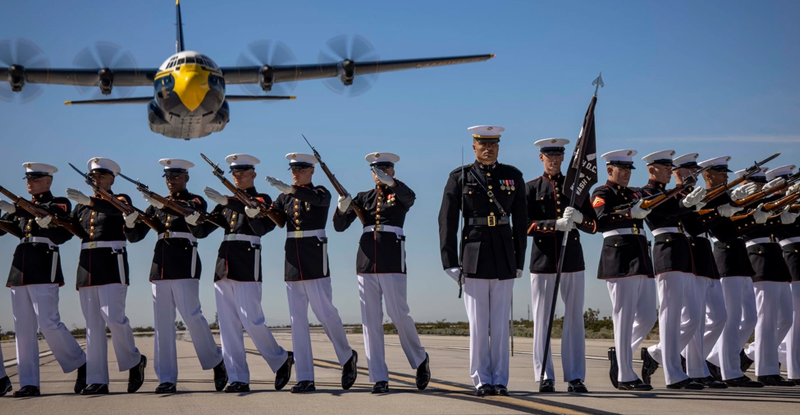

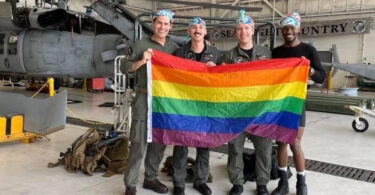
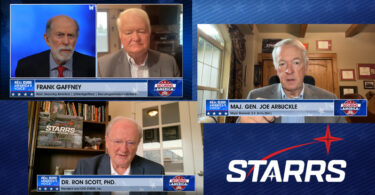
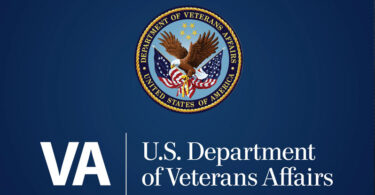
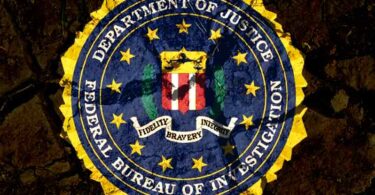

Army Values… they are focused on a service and the values driven by the Army leadership, and those values can too easily conflict with values reflected in our national Constitution and our Declaration of Independence. They can too easily conflict with the good of the nation, if the service is led by less than upright leaders. The services need values anchored in the needs of the nation, not in the whims of service leadership.